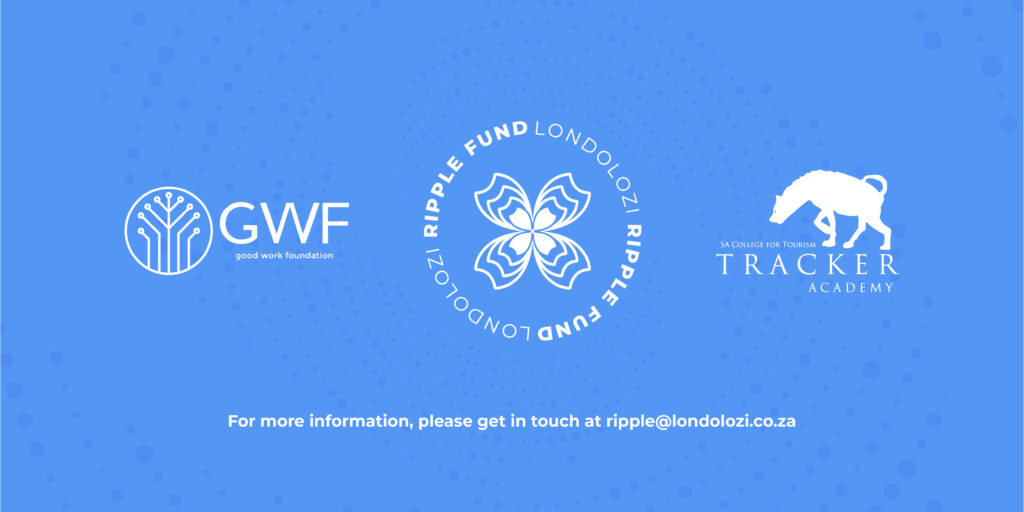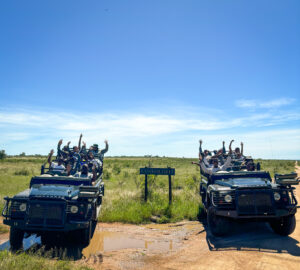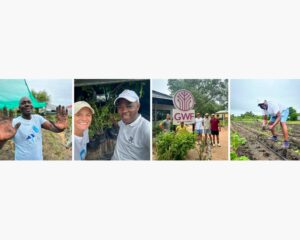Over the last few weeks, some of the Londolozi family have had the opportunity to partake in “Londolozi immersions”. Rangers, Camp Managers and other staff were encouraged to explore the surrounding areas of the Sabi Sands. From engaging with local farmers and getting our hands dirty at a grassroots-level, to interacting with students from schools and the Good Work Foundation, to being taught arts and crafts by local people in the outlying communities – we were given a magical opportunity to see the Londolozi Ripple Effect first-hand.
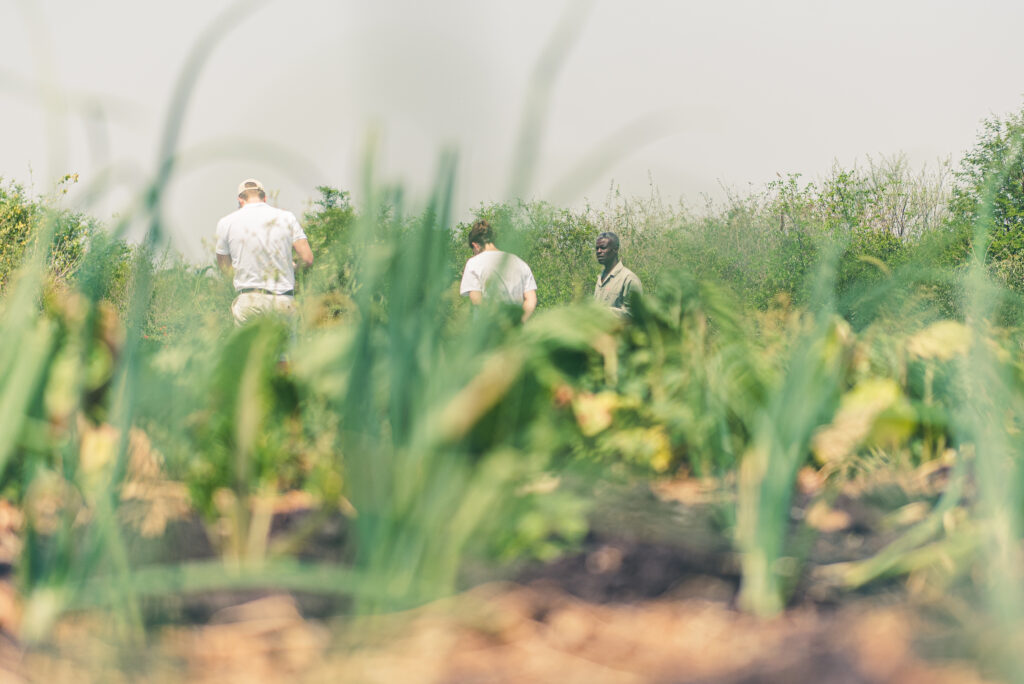
I was inspired by the stories of the amazing local farmers who have built up successful businesses completely from scratch, showcasing incredible entrepreneurial skills and passion for their work and their community. I was completely in awe of the craftsmanship shown by local men and women who create beautiful works of art. But what mostly stood out for me, was the importance of education.
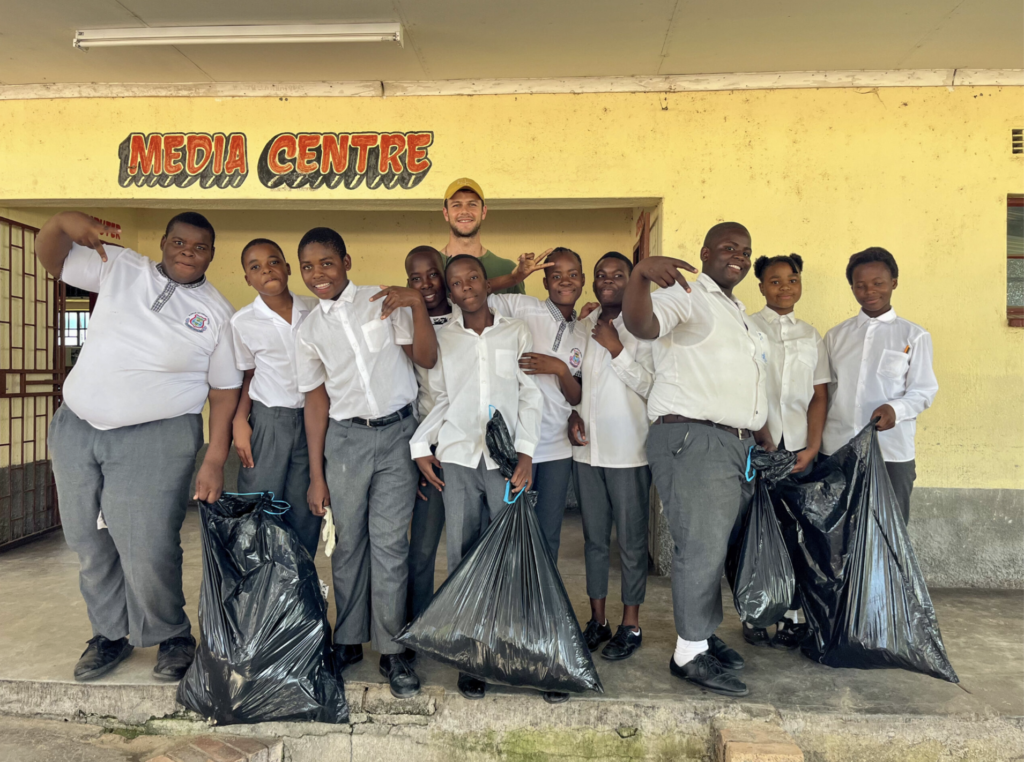
Whilst I have always understood the importance of education all around the world, it was only upon engaging with children in secondary schools from the community, that I truly realised how much of a difference it can make. This is more than just simple arithmetic, I’m talking about the type of education that changes people’s perspectives.
“Education is the most powerful weapon which you can use to change the world.” – Nelson Mandela
Reimagining Education with the Good Work Foundation
I finally realised why the Good Work Foundation has been at the centre of Londolozi’s Ripple Effect; because education is the key to access.
Your safari at Londolozi reimagines education in South Africa
As the patron and founding donor of the Good Work Foundation (GWF), Londolozi established the first prototype digital learning centre in the Londolozi Village in 2007. From these humble beginnings, the GWF has grown into a significant futuristic educational model which operates in tandem with the formal schooling system and is now delivering access to world-class education in a number of remote rural villages neighbouring the reserve. In 2012, the Hazyview Digital Learning Campus (HDLC) prototype was established close to the border of the Greater Kruger National Park, approximately 100 kilometres from Londolozi.
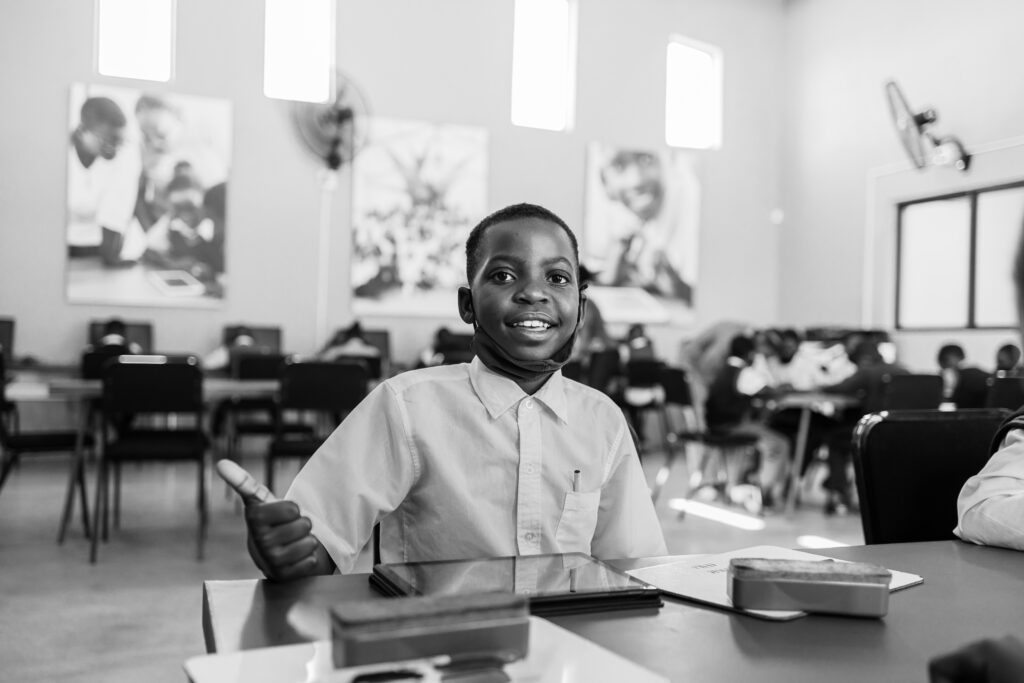
This campus has become an ecosystem of learning, which not only complements the existing schooling system but prepares learners technically and emotionally to access gainful employment in the emerging digital cloud economy and the fourth industrial revolution. The success of the GWF is evidenced by the extraordinary results being achieved at both the central innovation campus in Hazyview and the six satellite digital campuses which have been established in the villages adjacent to the Sabi Sands and Kruger National Park. The success of this first-of-a-kind learning model has been directly linked to guests who have chosen to safari at Londolozi or in the Sabi Sand/Kruger area.
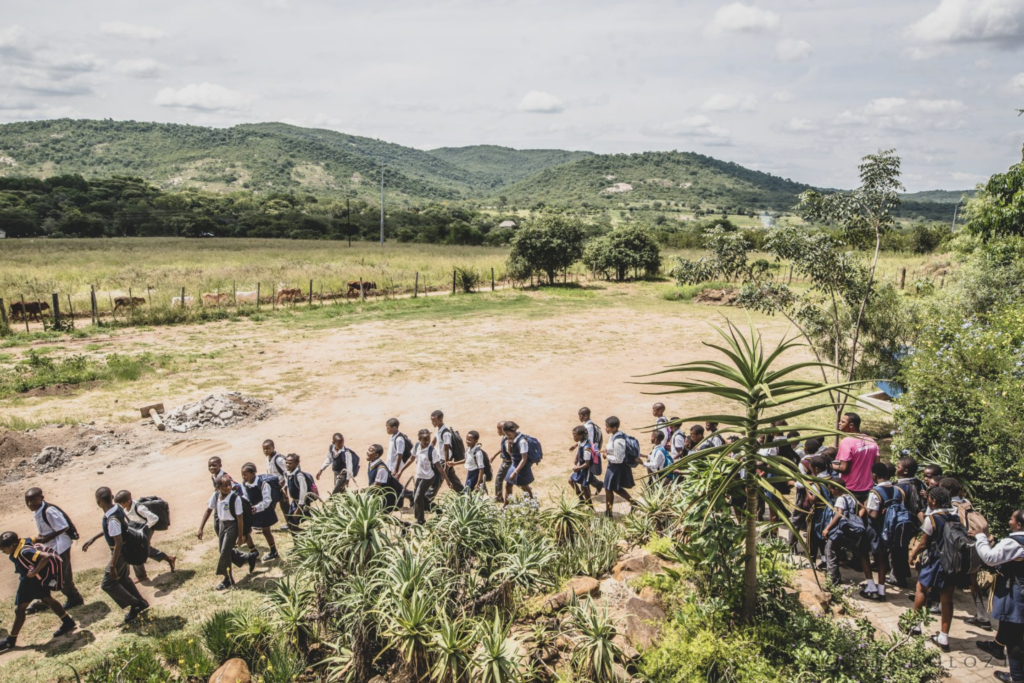
After myself and 4 other staff members introduced ourselves to a class of roughly 50 Grade 9 learners (15-year-old), the pupils were intrigued by our occupation and had some valuable questions for us. For the next 2 hours, we exchanged views and walked in each other’s shoes. We were both teachers and students – what an incredible time we had.
Two questions completely blew me away, and I thought I would take the time to chat about them today…
“Why are you wanting to protect lions when they kill people’s livestock?”
“We simply don’t understand why a rhino’s horn is so sought after. What value does it actually hold?”
Whilst I acknowledge the importance of myself teaching, explaining, and interpreting information to guests whilst on safari, I felt a fair amount of pressure to deliver accurate information that could change some of these young learners’ perspectives on important, topical subjects.
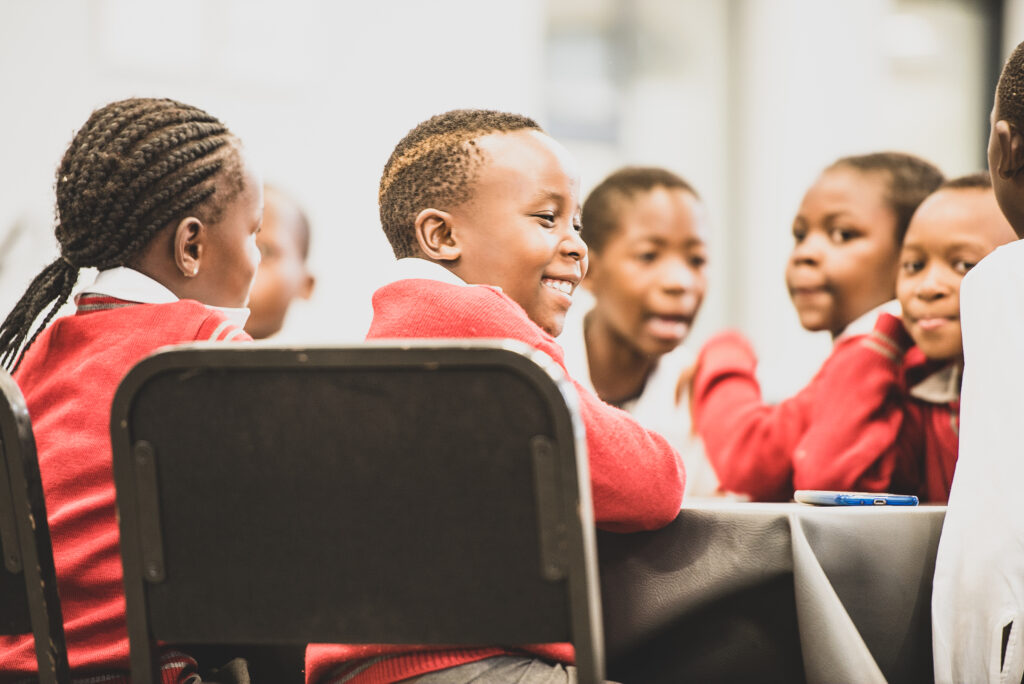
What perspective am I talking about?
One might be able to establish from the tone of the first question regarding lions, that the communities on the outskirts of game reserves at times tend to associate lions with loss. This is a more relevant topic in communities bordering game reserves with no fences such as the Serengeti National Park in East Africa, it’s in these areas that human-wildlife interaction is more evident.
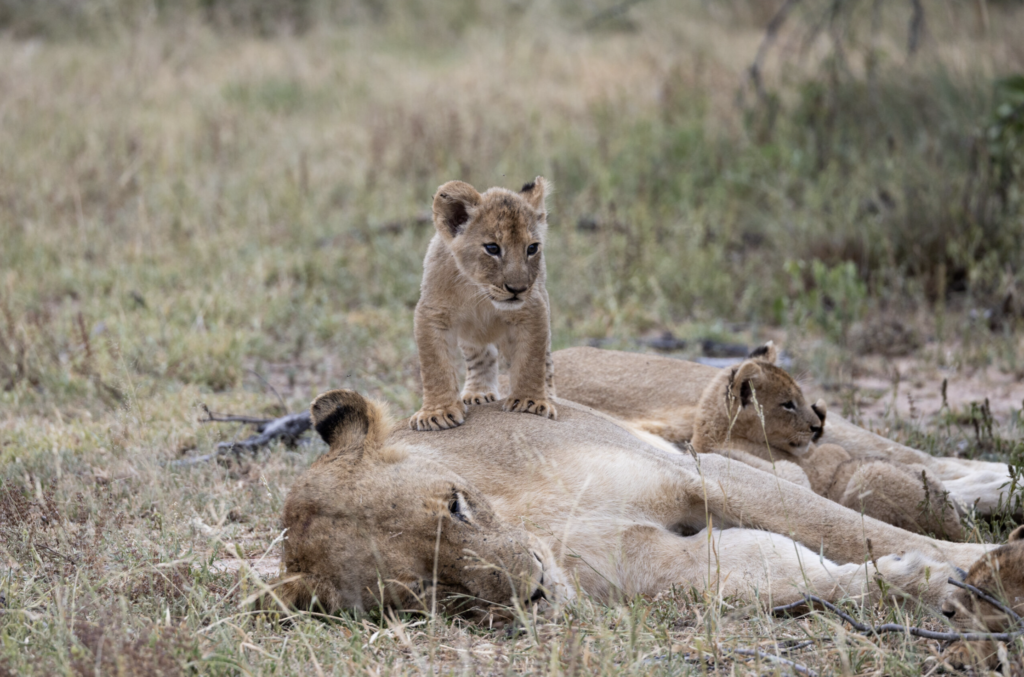
I first explained to the children that lions were in fact in this area before us humans and so, by protecting lions, we are preserving our natural history. They didn’t seem convinced until I reiterated that we all benefit from the lions living wildly at Londolozi. People come from all over the world to see animals here, which means that Londolozi needs staff and jobs are created. People are employed and this ultimately means dependents in communities are supported… so I explained in detail the importance of protecting these animals, as well as wild places as a whole. I think they were on my wavelength after I was able to bring it closer to home… There are, of course, many other reasons why we protect lions, I just found these to be the most relevant for the children.
A big part of the Good Work Foundation’s program is its Conservation Academy. Time is taken to share with learners the importance of our environment, but what I liked most was that it also gives learners the opportunity to experience these natural ecosystems in real time by allowing children in rural communities to take game drives into the Sabi Sands and Kruger National Park. In chatting with different groups of children, I realised that books can only take you so far, and seeing a wild lion truly brings home that people and animals, if they respect each other, can create a beautiful life for everyone.
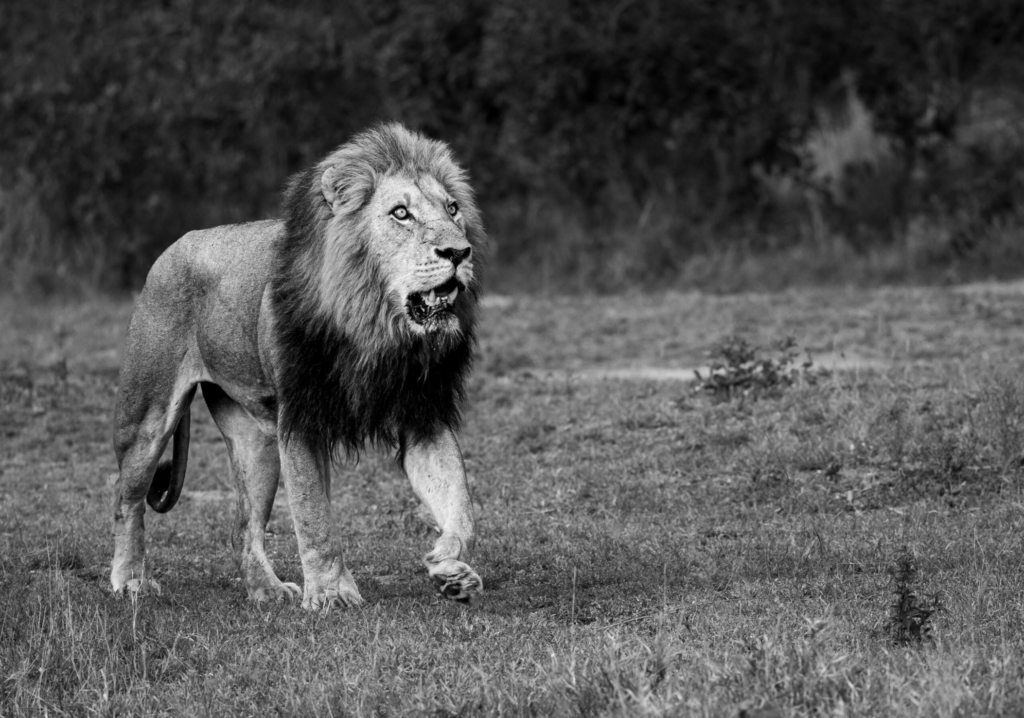
The second question regarding rhino horn is also layered. An accurate and simple answer was essential here. As future leaders in the surrounding communities, these children need accurate information they can share with their families and friends. The myths regarding the medicinal value of rhino horn as well as the symbolic status (or rather lack thereof) of owning rhino horn need to be debunked and Ranger Tayla Brown came to the forefront by doing just that. Scientifically, these horns hold no more value than your hair or nails in weight! What we shared with the children is the possibility of living harmoniously alongside rhinos. There is an opportunity to experience rhinos by pursuing a career in becoming a Tracker with the Tracker Academy or a Rhino Guardian. Sometimes dreaming begins with the sharing of stories about what is possible. It was wonderful to be with these children and to paint the possibilities of an ecosystem where rhinos are protected.
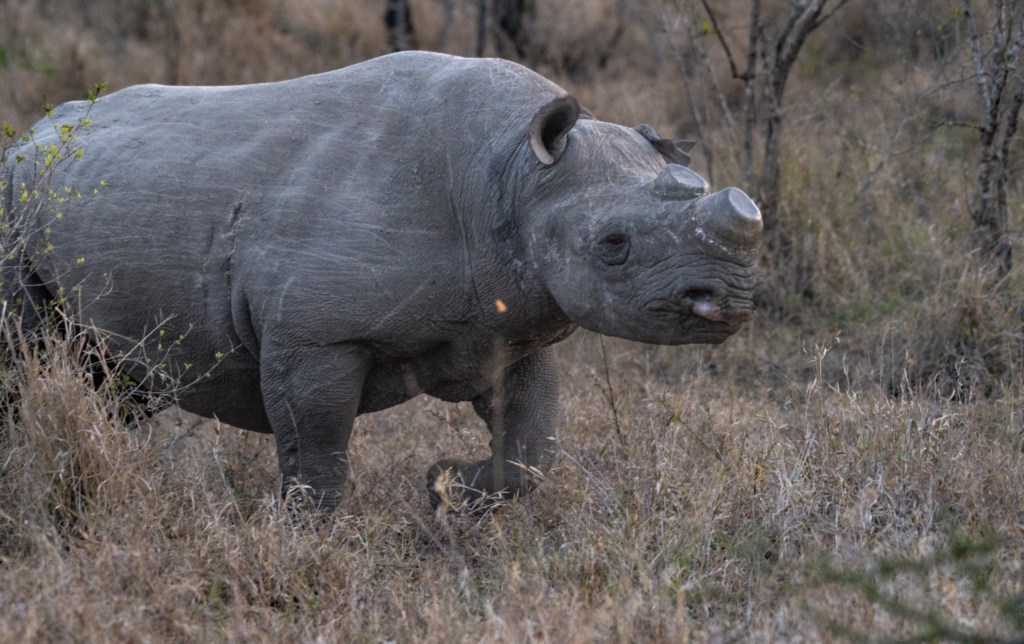
I have to admit; the thought of me standing in a classroom full of learners seemed somewhat daunting, but when we were put on the spot and in the moment, something clicked and I realised just how much power education has and how easy it was to share what I love. I hope that we were in some small way able to change these young South African’s perspective on conservation, and maybe even inspire some of them to join us in conserving wild spaces in the future, too.
“Education is the great engine of personal development. It is through education… that a child of farm workers can become the president of a great nation.” – Nelson Mandela
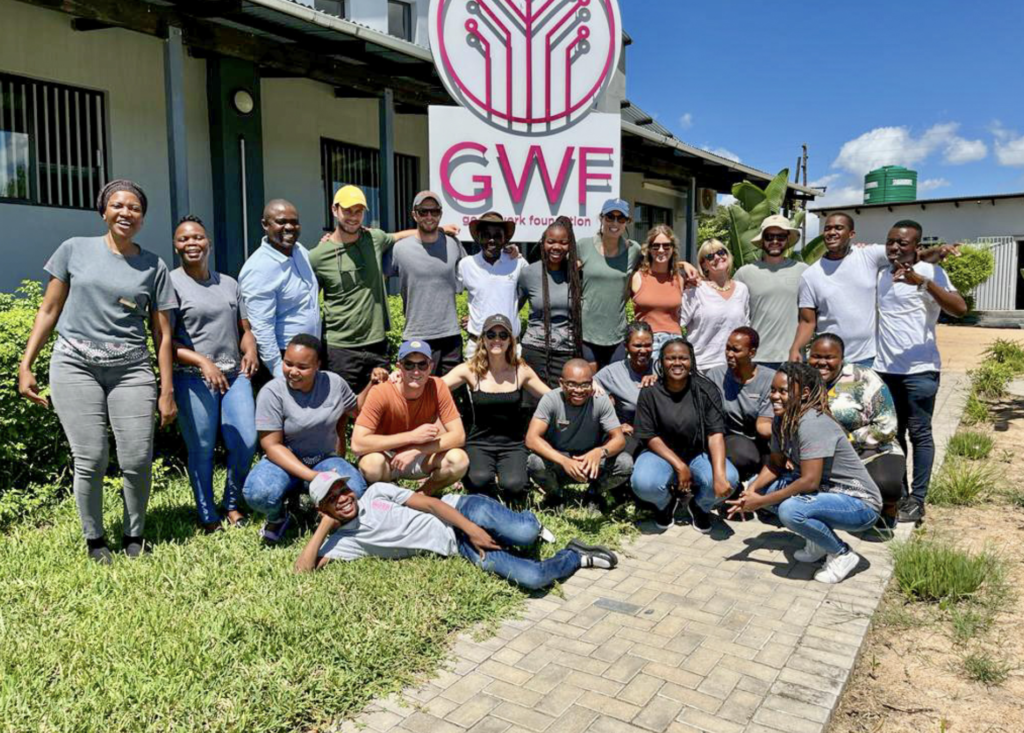
On a continent and, more specifically, in a country where access to education is still a major issue, Londolozi strives to achieve Nelson Mandela’s dream of educating the youth in the country. The GWF is the main avenue through which Londolozi aims to reach this goal. It has been a model for enabling children from underprivileged communities to access world-class digital education. The Good Work Foundation is changing perspectives every day. Walking through those doors was a very powerful feeling for me. Speaking to and interacting with the future leaders of South Africa is something I won’t be forgetting anytime soon.
If you’re interested in how your stay at Londolozi creates a ripple effect in the communities around the reserve, I encourage you to read this article on the Good Work Foundation reaching its 1oth anniversary. For more information on The Londolozi Ripple Fund, or to make a donation please contact us at ripple@londolozi.co.za.
